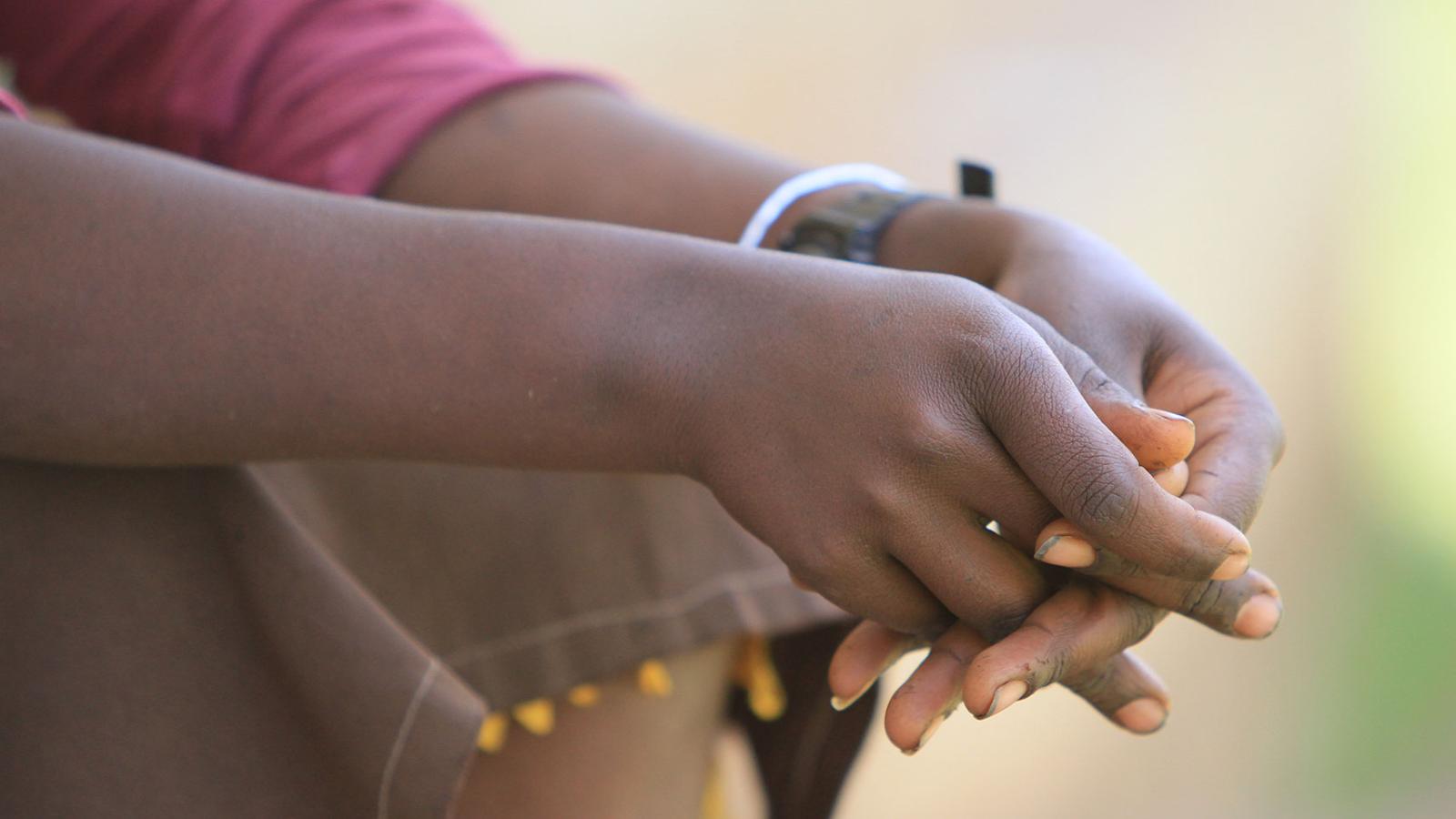Caught in the crossfire: understanding the impact of conflict on young people’s lives in Ethiopia
Initial findings from a Young Lives pilot survey highlight the devastating impacts of the conflict in Ethiopia on young people – and the importance of longitudinal research in tracking and understanding these.

When the Ethiopian government and Tigray People's Liberation Front shook hands in November 2022, to end two years of devastating conflict, few doubted the enormity of the task to rebuild people’s lives and ensure a lasting peace. Getting behind the headlines to really understand how the conflict has affected young people’s lives, however, is not easy.
The Young Lives study has followed the lives of 3,000 young people in Ethiopia, from infancy and early childhood since 2001, who are now aged 22 and 29 years old. At the start of the conflict in 2020, Young Lives was one of the only longitudinal studies able to collect data in Tigray and conflict-affected areas in Amhara through our COVID-19 phone survey, before disrupted communications and the intensity of fighting made it impossible to continue. With the peace agreement still in place, we are now planning to return in person to all of our study sites for our next comprehensive survey round (‘Round 7’), including those sites that were caught up in the conflict. Our survey interviews, in six regions of Ethiopia, are due to begin in October 2023.
Asking young people how deeply traumatic experiences have affected their day-to-day lives needs to be approached with the utmost care and sensitivity. In preparation, we completed a short pilot survey interviewing 139 young people living in 10 sites close to our main Young Lives sample (and representing similar social and economic backgrounds). Our pilot tested both the validity and robustness of new survey modules designed to capture experiences and consequences of the conflict, while minimising any undue distress for participants completing the survey. This blog presents initial findings from our pilot survey data, highlighting some of the devastating impacts of conflict on young people living in the conflict-affected areas of Tigray and northern Amhara, as well as in Oromia and the capital city Addis Ababa.
Young people have been exposed to shocking levels of violence and loss of life
Individual experiences of violence were shockingly high during the conflict, particularly in Tigray, and among those living in poor and rural households. In Tigray, 63% of young people said they had witnessed someone being killed, with over 60% reporting that a friend or family member had been seriously injured, had disappeared, or had died as a result of the conflict. Reported sexual violence was particularly high in Amhara, with almost one in three (29%) of our pilot respondents saying they had witnessed sexual violence and 11% reporting they had been subject to sexual violence themselves.
Running out of food has been commonplace during the conflict
Over half (55%) of our pilot sample in Tigray, and 38% in Amhara, reported that their households did not have enough food during the conflict; high rates were also experienced in Oromia (31%) and even Addis Ababa (25%). As is often the case, those living in the poorest households have been hardest hit. These alarming levels of food insecurity are likely to have been caused by multiple factors, including inflation, rising food prices and income shocks; crop failures due to repeated droughts; and the disruption of markets and distribution of food aid during the conflict.
Day to day lives have been affected by multiple economic and personal shocks
Nine out of 10 young people in our pilot survey reported that their day-to-day lives had been affected by significant price increases, which is not surprising given spiralling inflation of between 20 and 35% in Ethiopia since 2020. Just over half of those surveyed had also suffered a major income shock, either due to loss of jobs, family enterprises, or other sources of income. In Tigray, seven out of 10 young people in our pilot study were unable to find jobs or continue working during the conflict.
The conflict is having a significant toll on young people’s mental health
Almost half (47%) of young people in our pilot in Amhara and a third (33%) of those living in Tigray reported symptoms associated with Post Traumatic Stress Disorder (PTSD). This is compared to 15% in Addis Ababa and none in Oromia. The prevalence of PTSD symptoms seems to be directly linked to young people’s exposure to the conflict and their experience of shocks, with ongoing insecurity in Amhara also likely to be a contributing factor.
Longitudinal research is vital to understand the impacts of conflict and global crisis on young people’s lives
With over two decades of longitudinal research, Young Lives has built a unique body of data with huge potential for understanding how counnflict and compounding global crises are affecting the lives of young people, particularly those from poor and marginalised backgrounds.
Previous Young Lives research shows that global crises are exacerbating many of the triggers of mental health issues, particularly in relation to rising levels of poverty and inequality, food insecurity and job losses. In Ethiopia, our evidence shows that the outbreak of conflict in 2020 led to a significant decline in mental health in Tigray, with young men experiencing increased symptoms of anxiety, and young women experiencing increased symptoms of depression. Witnessing and experiencing violence can have profound effects on young people’s mental health and overall well-being, alongside other known risk factors, including food insecurity and job losses, with interrupted education and increased domestic work likely to have a disproportion impact on women and girls.
Building on the lessons we have learnt from our pilot study, our forthcoming Round 7 survey will enable a much deeper understanding of how conflict and multiple shocks are affecting young people’s mental health. This will include in-depth analysis of anticipated increases in symptoms of anxiety and depression, alongside new Young Lives data on experiences of stress and PTSD. This knowledge is crucial for informing policy, designing targeted interventions, and improving young people’s mental health in Ethiopia.



